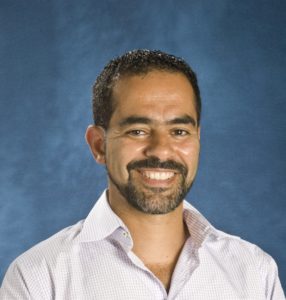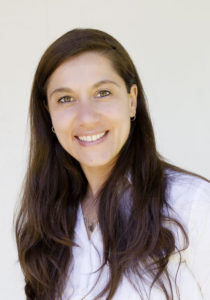What do Type 2 diabetes, cardiovascular disease and obesity have in common? They are all increasingly prevalent, non-communicable diseases that share poor diet as a modifiable risk factor. Doctors routinely prescribe medications to treat patients’ metabolic diseases, but lack the sufficient training in nutrition to appropriately utilise dietary interventions. Let Food Be Thy Medicine will bring together healthcare practitioners from various disciplines including bariatric medicine, surgery, general practice and dietetics to discuss how we, as future doctors, can prescribe diet as medicine for our patients.
Speakers:
 Mr Ahmad Aly
Mr Ahmad Aly
Ahmad is a Melbourne based Upper Gastrointestinal and Bariatric Surgeon. He is Head of Upper GI Surgery at the Austin Hospital, Melbourne and is Clinical Associate Professor with the University of Melbourne. Ahmad has active clinical, teaching and research interests in advanced laparoscopic surgery, reflux, Barretts and OG Cancer as well as Bariatric surgery. Specific areas of interest in bariatrics include mechanisms of surgery, the role of revisional surgery and modern metabolic care. He is a strong advocate for equity of access and is currently leading the development of a National Framework For Delivery of Bariatric Surgery in public hospitals Ahmad is a regular contributor to national and international meetings with over 60 presentations and more than 30 peer reviewed publications and book chapters and is representative on several professional associations and advisory bodies in Upper GI surgery and bariatric surgery, including currently serving as the Immediate Past President of ANZMOSS. He loves his beloved Richmond Football Club, is a black belt in Karate, is a part time not very good fisherman and is kept happily busy by his four children who continue to surprise him even when he thought he’d seen everything.
 Dr Nikki Fisicaro
Dr Nikki Fisicaro
As a general practitioner, Dr Nikki Fisicaro believes in the power of food as medicine. She describes that at times our current healthcare model doesn’t feel like healthcare at all, but disease management with a focus on band-aid solutions rather than true healing from within. She encourages her patients to eat whole foods, high in healthy fats, with minimal processing. This low-carb, real-food approach empowers patients to take control of their health and has been shown to improve lifestyle-related chronic conditions and reverse Type 2 Diabetes.
 Dr Edward Cliff
Dr Edward Cliff
Eddie is a medical registrar and Fulbright Scholar with interests in medical research, public health policy, innovation and music. An aspiring clinician-scientist, Eddie completed his Bachelor of Medical Science as a visiting student at the University of Oxford, where he researched the physiology of neonatal diabetes. Currently working as a registrar at the Royal Melbourne Hospital, Eddie also has a passion for public health, especially obesity, non-communicable diseases, and food policy. Eddie is the Australian Policy Coordinator for NCDFree and helped to organise two iterations of festival21, which is a massive celebration of community, food, culture and future, attended by more than 5000 people.
 Ms Daniella Di Benedetto
Ms Daniella Di Benedetto
Daniella Di Benedetto has a Masters degree in Nutrition and Dietetics, a Bachelor of Science in Biomedical Science and a Graduate Diploma in Exercise and Sports Science. She is a member of the Dietitians Association of Australia and has also been an Accredited Practicing Dietitian for 14 years. Daniella is also an academic, with a history of lecturing in the Biomedical Science department at Swinburne University in Melbourne, and was the recipient of the 2015 Deans Award For Teaching and Learning. Daniella’s interests lie in clinical dietetics, in particular bariatrics, where she is currently a reviewer for the Obesity Surgery Journal and she has co-written the DAA course on Medical Nutrition Therapy In Bariatrics. She is soon to embark on a PhD in this area. Other clinical interests include gastrointestinal disease, renal disease, diabetes mellitus, nutrition support, and malnutrition.
